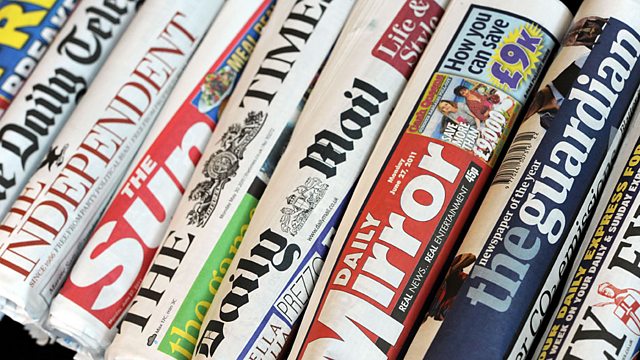Election Special
Andrew Rawnsley hosts a special election edition of the programme in which top journalists debate live what three newspaper-style editorials should say about the key stories.
In a special edition of Leader Conference, to mark the start of the 2015 general election campaign, Andrew Rawnsley was joined by Mary Ann Sieghart, Torcuil Crichton of the Daily Record; Emma Duncan of the Economist; Trevor Kavanagh of the Sun; and Rafael Behr of the Guardian.
We discussed:
Away with the taboos!
The contours of the general election campaign are becoming clear and we lament what we see. The issues which voters should hear being debated are being sidelined, while the politicians fixate on those they like to argue about among themselves. Voters deserve better. So what is to be done?
We first want to see politicians accept reality – hard though they may find it. The era of single party government is on the ebb, so politicians should manage that better when more than just one party has a stake in the process.
Second, the politicians need to be less evasive and instead clarify their stances in certain key policy areas to be credible. The Conservatives should spell out the welfare cuts they would make; Labour needs to be clearer about its tax plans.
More broadly, we want the parties to discuss openly such critical issues as how the country is to earn its living. The slump in productivity since the start of the financial crisis is unprecedented. It needs to be tackled boldly if people’s living standards are to rise again. This will include discussing, for example, how far immigration can make the economy more productive rather than just focusing on the numbers of migrants.
Other taboo subjects that should be addressed include the quality of teaching in schools and the adaptability of the workforce. It may be easier to sack workers in the UK than in other countries. But that flexibility shouldn’t be confused with ensuring British workers can adjust to changing market conditions because they are well-educated and multi-skilled.
The deal that must be done
The world could be forgiven for thinking negotiations with Iran over its nuclear programme will never end. This week’s deadline for progress has come and gone and still they talk in Lausanne. For Tehran’s critics, especially in Israel and much of the US Congress, this is proof of Iran’s bad faith and the West needs to bring a halt to the farce. However, we believe there is still value in continuing to talk.
The purpose of the talks is unchanged – to bring Iran’s nuclear programme under international supervision, to prevent proliferation of nuclear weapons and so to diminish tensions in the Middle East.
The problem in Switzerland is over the sticking points to a nuclear deal. First, there is the technical question of how many centrifuges Tehran should be permitted to have. This matters because it determines how readily it could construct a nuclear bomb. Second, there is the vexed question of the inspection regime to ensure compliance with any deal.
Proper supervision and unimpeded inspection by the International Atomic Energy Agency are essential. They would be important gains and precedents in the fight against nuclear proliferation. But they would also begin a process of integrating modern Iran into international institutions that could provide significant longer-term benefits.
Sanctions imposed by Western countries helped bring Tehran to the negotiating table; relaxing them after a deal could strengthen reformers there. A more responsible Iran is potentially an important gain for Western interests, closely though it would have to be watched.
We have no illusions about Tehran’s intention to be the principal player in the Gulf region or about its support for Hamas and Hizbollah and backing for Shia militias across the Middle East. The failing state of Yemen is merely the latest site of its long-standing rivalry with Saudi Arabia. But that does not mean the nuclear talks are not worth pursuing. On the contrary, they underline the importance of trying to get a deal.
Love letter to Suffolk
While many of Britain’s cities have been reinvented as temples of culture and consumerism thanks to money from the taxpayer, old harbours, fishing ports and coastal towns have been sorely neglected. It’s time they received better treatment.
Take Lowestoft. Once a thriving fishing port on the Suffolk coast where each year the annual herring fishery ended, the harbour enjoyed a boom in the first part of the 20th century, hence the fishermen’s affectionate description of herring as “silver darlings”.
Decline, though, was abrupt and large scale fishing for herring effectively ended fifty years ago. Lowestoft has like many other such towns fallen on harder times.
It needs hope, specifically a new bridge. The town is divided in two by a bascule bridge which opens and closes frequently each day, but it needs a new one which could be a hope for the future and a beacon of renewal. We warmly commend the idea to whoever should win the general election.
Producer: Simon Coates.
Last on
Broadcast
- Wed 1 Apr 2015 20:00�鶹�� Radio 4

